Can Cats Eat Sardines: 11 Authentic Reasons Why Your Cat Will Thank You For Sardines
You’ve probably seen the video of a cat gagging at the smell of seafood. (If you haven’t I’ll include it at the end of the post). Now, I don’t blame the cat since seafood sometimes smell off, and sardines take the crown for having a really strong smell.
My cat loves sardines, despite their smell, and this is something that amazes me. I’ve done some research and here is why you should feed your cat some sardines.
In this article, I’ll be discussing the benefits of sardines to cats and how to incorporate them into your kitto’s diet.
Benefits of sardines to cats
1. Source of protein
Sardines are an excellent source of protein for cats. Just 4 sardines are loaded with 12 g of protein.
Felines need high levels of protein to maintain their muscle mass and keep their coat healthy, and they also require low levels of carbohydrates to prevent weight gain.
According to the clinical nutrition service, adult felines require a minimum of 6.5g/100 kcal. So, with a small sardine serving, your kitto can easily get the needed protein levels.
2. Promotes heart health
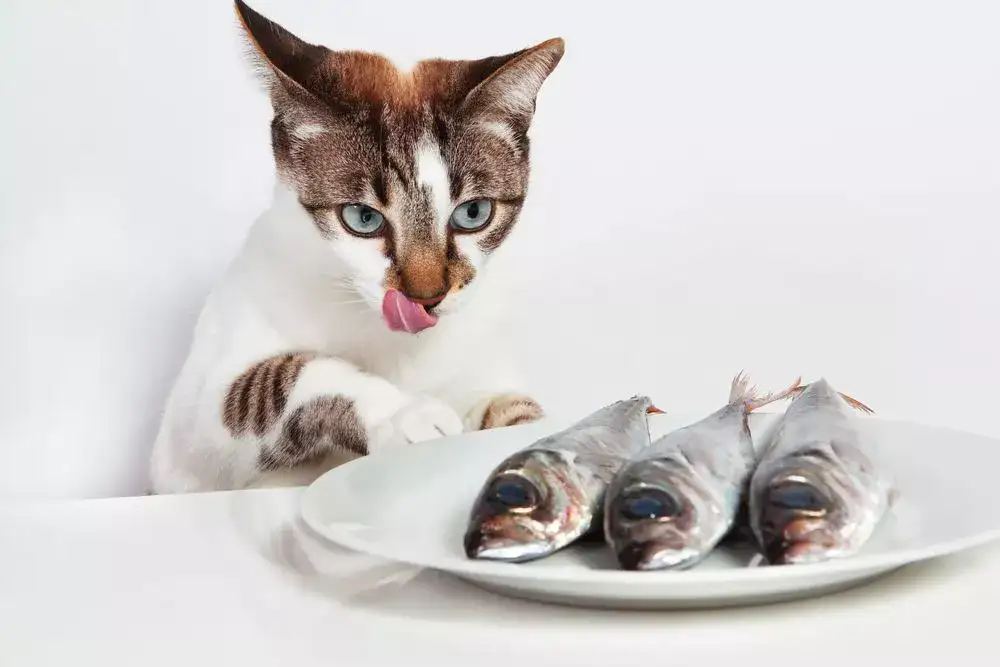
Sardines are loaded with omega-3 fatty acids which are crucial in a cat’s heart health. The fatty acids greatly reduce the chances of your kitto dying of cardiac arrest.
These essential nutrients help in reducing the bad fat around your catto’s heart.
But wait there’s more sardines offer for your kitto’s heart health. These little fishes help in reducing the irregular beating of a cat’s heart.
3. Helps with joint health
Sardines are packed with vitamin D, an essential nutrient in maintaining bone and joint health. Vitamin D also helps the body absorb calcium, while omega-3 fatty acids help reduce inflammation
4. Fights feline cancer
The Omega 3 fatty acids in sardines are essential in fighting off feline cancers. They help in reducing the tumor size and improve the cat’s quality of life.

5. Helps with allergies
Is your feline companion frequently sneezing? It’s possible that she may be allergic to mold and pollen particles.
One potential solution is to incorporate sardines into your kitten’s diet, as the fatty acids in this fish may help to prevent the development of these allergies.
In addition, sardines possess anti-inflammatory properties that can help to reduce any redness or inflammation caused by allergies.

Can Cats Eat Lobster? 11 Reasons Why You Should Feed Your Cat Some
6. Promotes brain development
Sardines are an excellent source of omega-3 fatty acids, particularly EPA and DHA. These fatty acids are important for brain health because they help reduce inflammation.
Additionally, DHA is essential for the proper development and function of the brain and nervous system. It helps to support cognitive health and can improve learning ability and memory.
7. Enhances weight management
Sardines are mostly proteins with a low carb content making them an ideal meal for cats. Felines need high levels of protein to maintain their muscle mass and keep their coat healthy, and they also require low levels of carbohydrates to prevent weight gain.
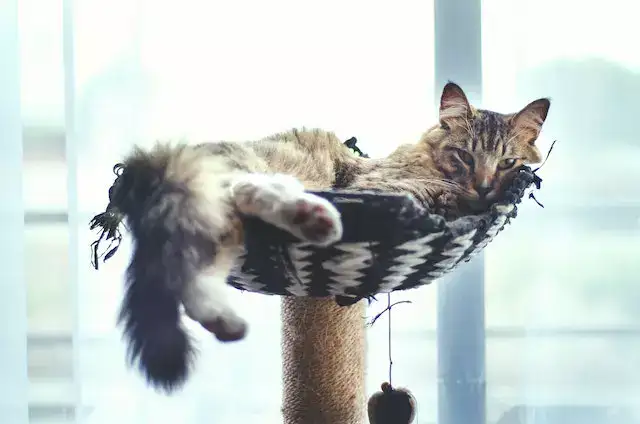
8. Promotes kidney health
Adding sardines to your cat’s diet is a sure way to boost their kidney function. As cats age, their kidney functionality starts decreasing with continuous use. With the omega-3 acids in sardines, you can boost your kitto’s kidney health and reduce their aging.
9. Helps manage seizures
If your kitto is epileptic and prone to seizures, then you should consider adding these small fishes to your cat’s diet. Sardines are loaded with anti-inflammatory properties which can help in suppressing seizure attacks by increasing your catto’s seizure threshold.
10. Improves mood
Sardines are abundant in DHA, a type of Omega 3 fatty acid. DHA helps to maintain a healthy balance of neurotransmitters in the brain, which can promote good moods. It has also been shown to reduce stress and anxiety in cats.
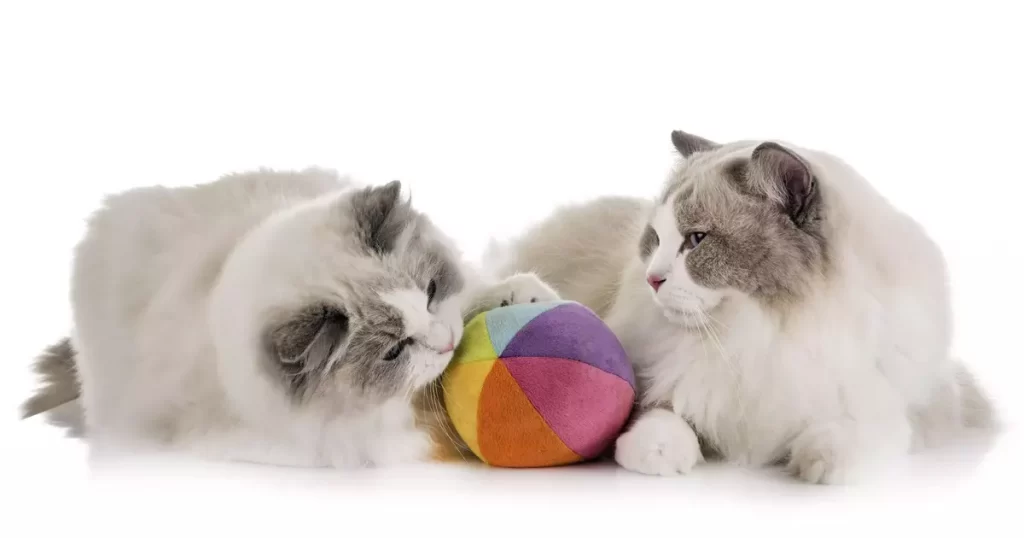
11. Promotes overall health
Cats need vitamin B12 found in sardines for a healthy immune system. This vitamin helps to keep the red blood cells healthy and prevents anemia. It also helps in the metabolism of fats and proteins keeping your kitto in good shape.
A table on the nutritional value of sardines to cats.
| Nutritional components in sardines | How it helps your cat |
| Omega 3 fatty acids | – Maintain regular cat’s heart rate |
| Proteins | – Build muscle. |
| Vitamin B 12 | – Promotes Cardiovascular health. |
| Vitamin B 2 | – Helps synthesize carbohydrates. |
| Fatty acids with atopy | – Helps relieve allergies. |
| Vitamin D | – Bone building and strengthening |
| Selenium | – Boosts immune – Has anti-cancer properties – Promotes joint health – Has antioxidant properties. |
| Calcium | – Bone and teeth building and strengthening |
| Potassium | – Regulates heart health – Regulates muscle contraction. – Helps with nerve impulses. |
| Zinc | – Hair growth – Kitten growth – Cell growth – Boosts immune |
| Phosphorus | – Build and maintain healthy bones |
| Iodine | – Healthy production of thyroid hormone. |
| Choline | – Helps in detoxification |
| Magnesium | – Helps in hormone secretion – Helps in bone and teeth building |
| Copper | – Develop red blood cells – Helps in collagen formation – Helps in iron absorption – Has antioxidant properties. |
Dangers of feeding sardines to your cat
1. Heavy metal poisoning
As with any seafood, sardines may have high mercury levels and other heavy metals. These are dangerous for your cat and may be lethal.
2. Choking risk
If your cat is anything like mine, then you always know the risk of choking too well. Since sardines are tiny, your kitto may end up quickly swallowing them and choking in the process.
I’ve tried to avoid this by boiling them to make them a little softer and easy to swallow.
3. Allergic reactions
Fish and meat are one of the foods with the highest allergy reactions in cats.
Start by feeding one or two sardines to your kitto to find out if they are allergic. You can then increase the number if you don’t notice any adverse reaction.
4. Stomach upsets
Sardines especially those soaked in oil can upset your cat’s stomach. Oily food acts as a laxative for some cats and your cat may experience diarrhea.
How to feed your cat sardines
1. Selecting the sardines

Choose fresh or high-quality canned sardines. Fresh sardines are an excellent option if they’re available to you. If fresh sardines are not available, choose high-quality canned sardines that are packed in water, not oil.
Look for sardines that are low in sodium and do not contain any added preservatives or artificial flavors.
2. Amount to feed your cat
For an adult cat, 1 to 2 small sardines per day is a reasonable amount. For a kitten or a smaller cat, you may want to start with smaller amounts and gradually increase them over time.
It’s important to keep in mind that sardines should not be the sole source of nutrition for your cat, and should be fed in conjunction with a balanced and complete diet.
If your cat is anything like mine, they may try to blackmail you into feeding them the whole can. Resist their cries and do not feed them too much.
You can mix the sardines with your cat’s regular food or feed them as a separate treat.
Can cats eat sardines every day?
Do not feed cats sardines every day as it can lead to an unbalanced diet. While sardines are a good source of omega-3 fatty acids and other essential nutrients, they should be fed in moderation as a supplement to a complete and balanced diet.
Cats require a diet that is high in protein and fat, with a balance of vitamins and minerals. Feeding too much of any one type of food, including sardines, can upset this balance and lead to health problems.
Additionally, sardines contain a moderate number of purines, which are substances that can break down into uric acid. Excessive uric acid can lead to urinary tract problems and kidney stones in some cats.
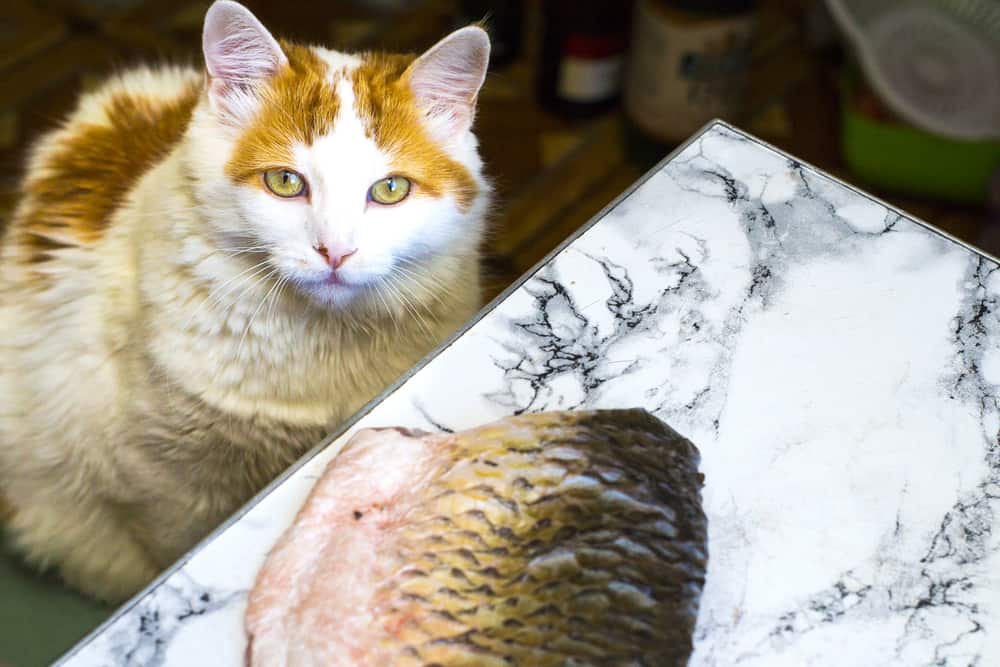
Can Cats Eat Fish Skin? 6 Best Reasons
At what age can cats eat sardines?
It’s generally recommended that cats start eating sardines as a supplement to their regular diet when they reach adulthood, which is around 1 year old. As always, it’s a good idea to consult with your veterinarian before making any significant changes to your cat’s diet.
FAQ
Can a diabetic cat eat sardines?
Sardines are one of the best meals to feed your diabetic cat. According to some vets, diabetic cats need to be fed lots of proteins. And, seeing this small fish is packed lots with protein and essential oils, it’s a perfect addition to a diabetic cat’s diet.
Do sardines help with hairballs?

Sardines can help your cat if they are having a hairball problem. The nutrient components of the fish promote a healthy coat and reduce shedding which in turn reduces the number of hairballs.
It doesn’t end there. The tiny fishes are also oily and the oil helps the hair glide through their intestines.
Can cats eat sardine bones?
Cats can safely eat sardines with bones. The bones are normally tiny and cannot pose any choking risk. Your cat can easily chew them since the bones are very soft.
Are canned sardines OK for cats?
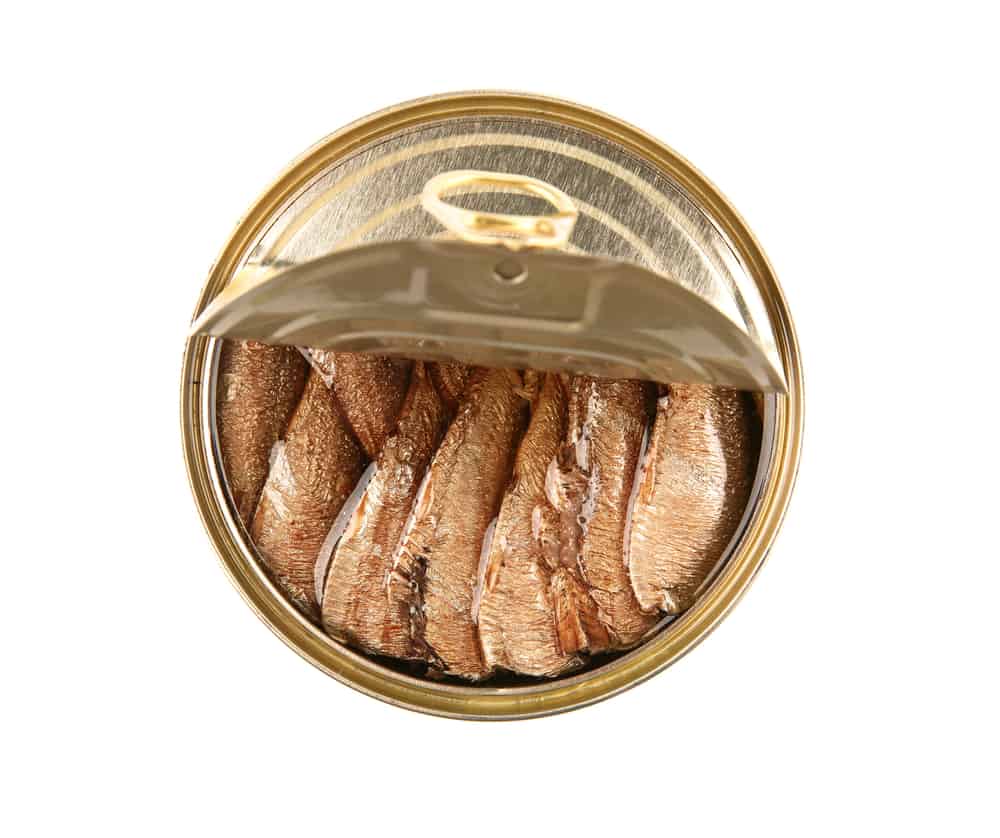
Canned sardines are OK for cats. However, it depends on what solution they are in. Solutions such as water and some vegetable oils are safe. Sardines in mustard should never be given to cats as it is unhealthy for them.
Can cats eat sardines in brine?
Cats should not eat sardines in a brine solution. Brine is prepared by mixing salt and water which can be harmful to cats and lead to sodium poisoning.
Can cats eat sardines in tomato sauce?
Cats should not eat sardines in tomato sauce. Although cats can eat red ripe tomatoes, the process of preparing the sauce is the issue. The salt used in the preparation is too much for cats and can cause sodium poisoning.
Can cats eat sardine in soybean oil?
Cats can eat sardines in soybean oil. Soy products are a great source of fiber and nutrition for cats. It’s also high in plant protein which can be beneficial in muscle building and a shiny coat for cats.
Can cats eat sardines in sunflower oil?
cats can eat sardines in sunflower oil. The oil is a healthy fat for cats and can help to keep their coat shiny and soft.
Can cats eat sardines in spring water?
Cats can eat sardines in spring water. The added water would be a great source of hydration seeing cats do not like drinking water. Additionally, uncontaminated spring water has its own nutrients that the cat can benefit from.
Can cats eat sardines in brewer’s yeast?
Sardines in brewers’ yeast is safe for cats. The yeast acts as a supplement for cats and is loaded with fiber, vit B, protein, and potassium.
Can cats eat sardines in mustard?
Cats should never eat sardines in mustard. If by chance your cat feeds on sardines in mustard, keep a close eye on them and observe how they react. However, in tiny portions, mustard is not lethal.
Here is the video as I promised, enjoy.







